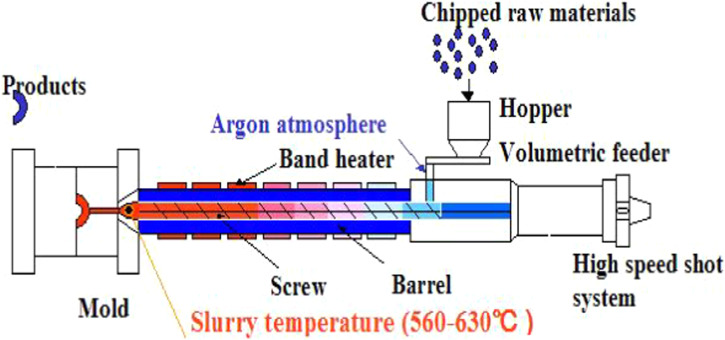Die casting is a manufacturing process that involves the use of molten metal, which is injected under high pressure into a mold or a die. The molten metal is usually a non-ferrous alloy, such as aluminum, zinc, or magnesium. The die casting process is capable of producing complex shapes with high precision and accuracy, making it an ideal method for mass-producing metal parts with consistent quality.
The die casting process involves several steps. First, the mold is prepared, which is usually made of steel and can be either a single cavity or multiple cavities. The mold is then coated with a release agent to prevent the molten metal from sticking to it. Next, the molten metal is injected into the mold under high pressure using a machine called a die casting machine. The pressure is applied until the metal solidifies, which usually takes only a few seconds. Once the metal has solidified, the mold is opened, and the part is ejected from the mold.
One of the advantages of the die casting process is its ability to produce parts with high dimensional accuracy. This is due to the fact that the mold is made of steel, which is a very hard and durable material that can withstand the high pressure and temperature of the molten metal. The mold is also designed with a high level of precision, ensuring that the part produced is an exact replica of the mold.
Another advantage of die casting is its ability to produce complex shapes with ease. The molten metal is injected into the mold at high pressure, which allows it to flow into every nook and cranny of the mold, creating parts with intricate details and shapes that would be difficult or impossible to produce using other manufacturing processes.
Die casting is also highly efficient and cost-effective when compared to other manufacturing processes. The process can produce large quantities of parts quickly and with high precision, which reduces the need for additional machining and finishing operations. This results in significant cost savings for manufacturers, as they can produce high-quality parts at a lower cost.
There are several factors that affect the quality of die castings. One of the most important factors is the design of the mold. The mold must be designed with the correct dimensions and tolerances to ensure that the part produced is an exact replica of the mold. The mold must also be designed to allow the molten metal to flow smoothly and evenly into all parts of the mold, without creating any air pockets or other defects.

The quality of the molten metal is another important factor that affects the quality of die castings. The molten metal must be of the correct composition and temperature to ensure that it flows smoothly and evenly into the mold. Any impurities or variations in the composition of the molten metal can result in defects in the finished part.
In conclusion, die casting is a precision manufacturing process that allows for the mass production of metal parts with high accuracy and consistency. The process offers several advantages, including the ability to produce complex shapes with ease, high dimensional accuracy, and cost-effectiveness. Manufacturers who require large quantities of metal parts should consider die casting as a viable manufacturing method. With the right design and production processes, die castings can be produced with high quality and accuracy, meeting the demands of a wide range of industries and applications.
-

- OEM vysokotlaké lité kolo z hořčíkové slitiny pro elektrokola
-

- Factory Custom China Bmx Cycles Road Sport Dětské kolo 12 16 18 20 Inches Cycle Mtb pro děti 6-10 let
-

- Magnesium alloy foundry parts bicycle wheel with CNC machining & surface finishing
-

- Díly a komponenty na kolo z hořčíkové slitiny pro dětská kola
-

- Magnesium alloy thixomolding die-casting UAV parts C
-

- CNC machined parts Steering bracket

 0086-750-5616188
0086-750-5616188 +86 13392089688
+86 13392089688 sales@zhongmei-tech.com
sales@zhongmei-tech.com







